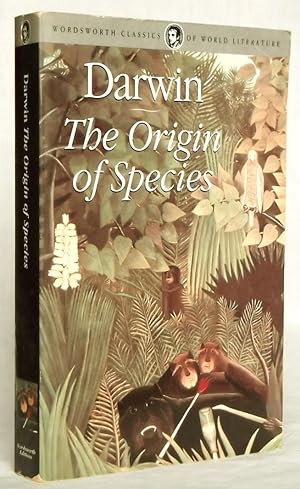

Ideally, Darwin goes on, it would be best to trace the gradual development of complex eyes in the ancestors of presently known animals. Take variation, its “inheritability” (Mendelian genetics at that time had not yet been born), and the utility of primitive eyes, and a complex eye may be readily evolved. One could also wish that his Victorian prose had been simpler and more direct-the last passages of the Origin are almost poetic in their elegance–but the thought is clear. One might wish that he had not been so cavalier about dismissing photosensitivity out of hand (“how a nerve comes to be sensitive to light, hardly concerns us”)-the evolution of rhodopsin and the architecture of rods and cones would have earned his admiration. The first sentence in this quote is often misrepresented as if Darwin were worried about explaining evolution of the eye, but in reality he was quite sure of his ground. How a nerve comes to be sensitive to light, hardly concerns us more than how life itself first originated but I may remark that several facts make me suspect that any sensitive nerve may be rendered sensitive to light, and like wise to those coarser vibrations of the air which produce sound. Yet reason tells me, that if numerous gradations from a perfect and complex eye to one very imperfect and simple, each grade being useful to its possessor, can be shown to exist if further, the eye does vary ever so slightly, and the variations be inherited, which is certainly the case and if any variation or modification in the organ be ever useful to an animal under changing conditions of life, then the difficulty of believing that a perfect and complex eye could be formed by natural selection, though insuperable by our imagination, can hardly be considered real.

To suppose that the eye, with all its inimitable contrivances for adjusting the focus to different distances, for admitting different mounts of light, and for the correction of spherical and chromatic aberration, could have been formed by natural selection, seems, I freely confess, absurd in the highest degree. One section of that chapter is titled “Organs of extreme perfection and complication.” In a shrewd preemptive strike against “natural theology,” the creationist or “intelligent design” idea of the day, Darwin wrote the sixth chapter in the first edition of On the Origin of Species on “Difficulties on Theory,” the theory being that descent with modification, or what later became known as evolution, was produced by natural selection. Shared Decision Making and CommunicationĬharles Darwin ( Figure 1) was well aware that his ideas would incite a storm of criticism from the general public, if not the scientific establishment.Scientific Discovery and the Future of Medicine.

Health Care Economics, Insurance, Payment.Clinical Implications of Basic Neuroscience.Challenges in Clinical Electrocardiography.


 0 kommentar(er)
0 kommentar(er)
